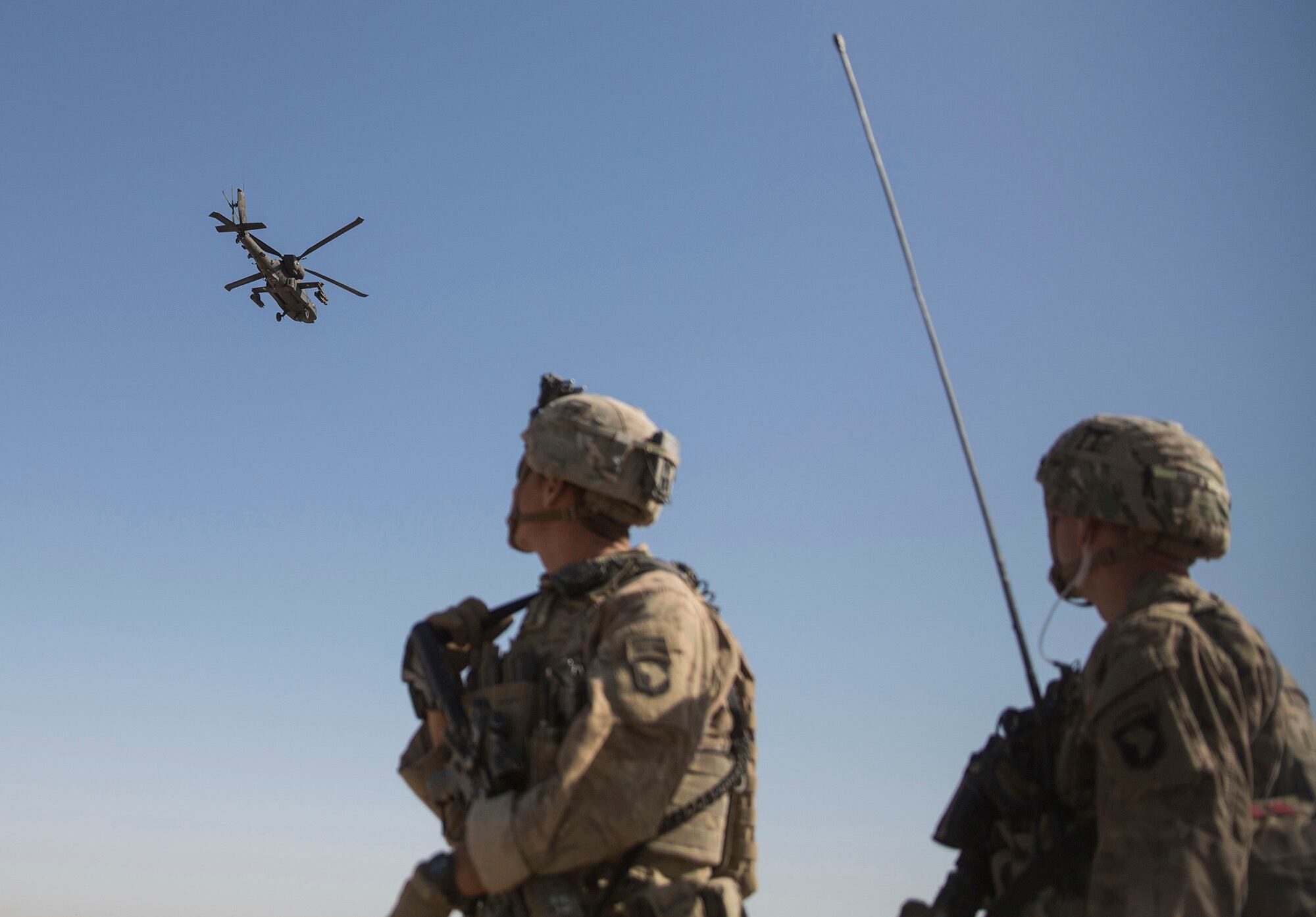WASHINGTON ― The House will vote on a repeal of the Iraq-focused 2002 war authorization this week, but similar legislation is on a slower track on the other side of the Capitol, where lawmakers were still negotiating with the White House last week.
The House will vote on its bill, from Rep. Barbara Lee, D-Calif., when it returns to Washington after its three-week recess, Majority Leader Steny Hoyer, D-Md., announced. The popular measure, which advanced out of the Foreign Affairs Committee in late May, has 103 co-sponsors, including seven Republicans.
“Congress enacted this authorization nineteen years ago for an action against the regime of Saddam Hussein,” Hoyer said in a letter to colleagues Thursday outlining the chamber’s plans. “It is not needed for any current operations, including in Iraq. Ongoing activities are conducted under the 2001 [authorization of the use of military force], which authorizes force against certain terrorist groups. Repeal of this unnecessary authority is long overdue.”
Plans aren’t set in the Senate, where Sen. Tim Kaine, D-Va., has said it’s crucial to get a “green light” from President Joe Biden to overcome resistance from any Democrats wary of curbing Biden’s authority. Kaine’s bill with Sen. Todd Young, R-Ind., would repeal the 1991 and 2002 war authorizations, both aimed at Iraq.
In a brief interview on Tuesday, Kaine said he hopes the Senate Foreign Relations Committee will mark up the measure before the July 4 recess.
“I was talking to the White House yesterday about it. I think they are likely to weigh in soon, and I believe they are going to weigh in favorably toward the repeal of the ’91 and ’02 AUMFs,” Kaine said. “I think we understand there is still a need for military activity against nonstate terrorist organizations, but they haven’t laid down firm red lines of ‘no sunset’ or ‘no geographic limitations,’ but they’re sharing concerns.”
A National Security Council spokesman confirmed the White House is working with Kaine and others, and that Biden wants to ensure the existing authorizations for the use of military force “are replaced with a narrow and specific framework that will ensure we can protect Americans from terrorist threats while ending the forever wars.”
The NSC is “committed to working with Congress as they move this legislation forward,” he added.
In the 50-50 Senate, one obstacle will likely be opposition from Republicans, and possibly some Democrats, who believe the executive branch needs broad latitude in matters of war. On the other hand, some Republicans who were reluctant to cross then-President Donald Trump are expected to be open to the measure now.
Though there have been numerous efforts in Congress over the last several years to reclaim the legislative branch’s constitutional war powers, Kaine said the conditions under Biden are the best yet. Kaine also hopes to tee up more talks this summer to revise the 2001 AUMF and to get an agreement by its 20th anniversary in September.
“There’s a lot of Democrats and Republicans who believe, 20 years in, if we can’t show them we’ve learned something and make it more precise, shame on us,” Kaine said.
Joe Gould was the senior Pentagon reporter for Defense News, covering the intersection of national security policy, politics and the defense industry. He had previously served as Congress reporter.










